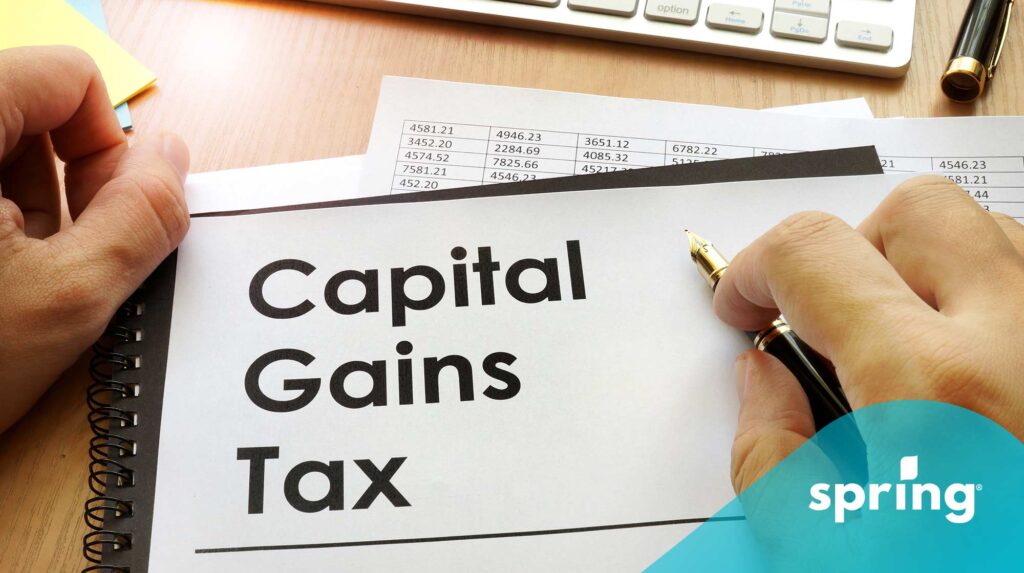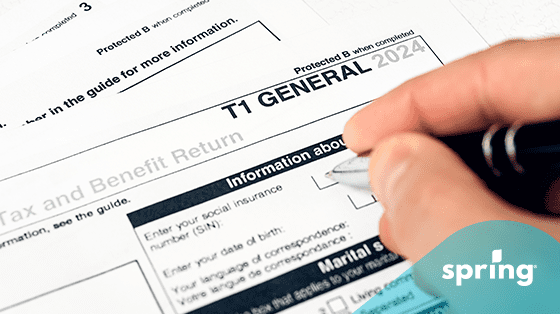Just like with CPP, in order to receive QPP, you do have to make contributions. The base plan allows you to make contributions through your employer at a contribution rate of 10.8% which is split equally between both the employer and you, the employee. Besides the base plan, there’s also the additional plan that has a contribution rate of 8% that is also split.
QPP Payment Amounts
With the Quebec Pension Plan, how much you receive in your bank account through direct deposit is based on how much your annual employment income was throughout your working life and when you choose to start receiving QPP. Essentially, the employment earnings you have that are filed under QPP from your working years will affect your amount. The more you’ve earned, the more you’ll receive.
If you file for QPP at 65, then you’ll get 100% of the amount you should receive. For any retirement age higher than 65 it will be more than this amount, and will cap at the age of 72. The amount you should expect to receive as of the standard age of 65 is about 25% of your average earnings. However, if you added the additional plan, then the income replacement rate increases to 33%. Your individual rate is calculated based on several factors.
Let’s take a look at the maximum monthly amounts based on age. That said, the average amounts are different than the maximum amount. Let’s look at both.
| Age | Maximum Amounts Per Month | Average Amounts Per Month |
| 60 | $917 | $480 |
| 61 | $1020 | $527 |
| 62 | $1123 | $575 |
| 63 | $1127 | $622 |
| 64 | $1330 | $669 |
| 65 | $1433 | $717 |
| 66 | $1553 | $777 |
| 67 | $1674 | $837 |
| 68 | $1794 | $897 |
| 69 | $1914 | $957 |
| 70 | $2035 | $1017 |
| 71 | $2155 | $1078 |
| 72 | $2276 | $1138 |
It’s important to keep in mind that when you begin receiving your pension at 65, the amount increases by 0.7% for each month that has passed since your birthday. This adjustment factor could mean that the amount you receive is slightly higher or lower.
QPP Eligibility
There isn’t much you need to be eligible for QPP, however, you do need to have sufficient earnings to meet the contribution requirements. Contributions are made after you turn 18 years of age and after you’ve earned $3,500 annually. Since it is a public pension, these are the only requirements. However, you do have to apply once you decide which age you want to start claiming.
QPP 2026 Payment Dates
Since QPP is paid monthly, each payment will be received once per month. These are different from the CPP payment dates since it’s a different program and administered by Revenu Quebec. Here are the dates for 2026:
| Payment Month | Payment Date |
| January | January 30 |
| February | February 27 |
| March | March 31 |
| April | April 30 |
| May | May 29 |
| June | June 30 |
| July | July 31 |
| August | August 31 |
| September | September 29 |
| October | October 30 |
| November | November 30 |
| December | December 30 |
Other Types of QPP Benefits
When it comes to QPP, there are other benefits than just the standard pension. There are also disability benefits, survivor benefits and death benefits, just like there are with CPP benefits. Let’s take a look at how these work.
QPP Disability
When it comes to the QPP disability pension, there are a few different eligibility requirements that you must meet before you can get approved. These include:
- Being under the age of 65
- Having sufficiently contributed to QPP
- Not receiving a CPP payments
- Being deemed to have a severe and permanent disability ( by Retraite Quebec’s medical advisors)
- Not being eligible for an unreduced income replacement indemnity from Commissions des normes, de l’equite, de la sante et de la securite du travail
Under the QPP disability benefits, it’s also important to consider that there are other types of benefits. There’s the standard disability benefit, but there’s also the pension for a disabled contributor’s child. This pension is paid to a disabled person’s child under 18 or dependent children who are living with a disabled person for at least a year.
QPP Survivor Benefits
Just like CPP, QPP also offers survivors’ benefits. These benefits are offered to the families of someone who’s deceased and contributed to QPP. Under these benefits, there are three different financial assistance options. Here’s how they work.
Death Benefit
This benefit is meant to be paid to whoever paid the funeral costs of the deceased or the heirs. It’s a lump sum payment of $2,500 to be paid after the application has been filled out. This benefit is also only available if the deceased made sufficient contributions to QPP.
Surviving Spouse’s Pension
If the deceased made sufficient contributions to QPP, then the surviving spouse could start receiving a basic income from QPP. However, when it comes to who is deemed the spouse, there are some stipulations.
If the deceased was considered to be married or in a civil union and there’s no legal separation, then they are the ones who will receive the pension. That said, there are some rules that change when the death occurs within the first year of marriage. If they weren’t married or in a civil union, the pension is then paid to the person who is considered to be a common-law partner.
Orphans Pension
If the deceased made sufficient contributions and had a child under the age of 18 now in the care of someone else, that person could get an orphans’ pension until the child turns 18. However, in order for the child to be considered their child, they would have to be their biological or adopted child. They’d also have to be living with the child for at least one year.
For this pension, the maximum amount per month is $301.77 per child. This is considered to be a taxable income and must be claimed under the child’s income. These payments are then made on the last working day of every month, the same as QPP payments.
Working While on QPP
In short, you can work while receiving QPP. However, you do still have to contribute to it while you are working. That is, until you are 72. After the age of 72, no more contributions will be made to QPP, and you’ll have reached your maximum pension amount. This is known as the retirement pension supplement and allows you to earn more money on your public pension.
Contributing to QPP While Self-Employed
Unlike with CPP contributions, self-employed workers in Quebec still have to make Quebec Parental Insurance Plan and Quebec Pension Plan Contributions. How much you pay for both of these is based on your income in the year. Due to this, you can either make these payments as part of your tax burden when you file your annual income tax return or with installment payments.
Final Thoughts
In Canada, there are a few public pensions, including CPP/QPP, Old Age Security and even the Guaranteed Income Supplement. Each of these pension plans is meant to supplement your retirement income, not be your whole retirement income. They can be paid along with any retirement savings, personal savings, and employment pensions that you have.
Throughout Canada, you can qualify for the Canada Pension Plan. However, in Quebec, the public pension is separate and known as the Quebec Pension Plan. This pension plan offers retirement income that can start at age 60 or as late as age 72 for both employed and self-employed individuals. You can choose to collect this at any time; however, your payments will be affected based on age. No matter when you choose to claim, though, you’ll still receive some payment as long as you meet the requirements.









